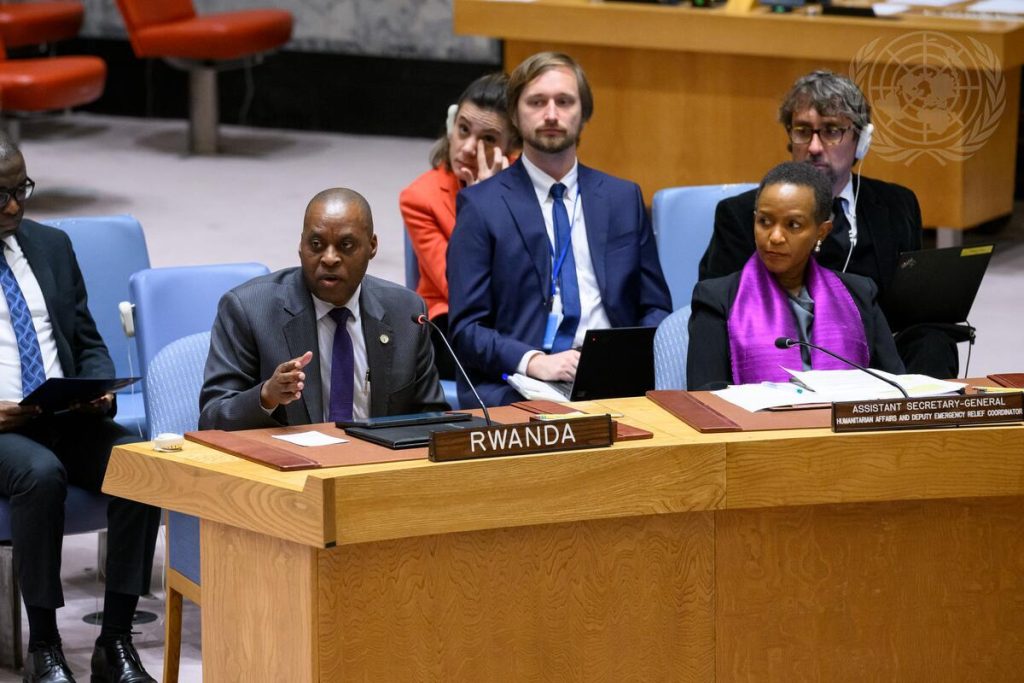Rwanda’s Permanent Representative to the United Nations, Ambassador Ernest Rwamucyo, criticised the Congolese government on Sunday, asserting that the ongoing security crisis in eastern DR Congo could have been avoided if Kinshasa had pursued dialogue instead of military action against the M23 rebels.
Speaking at the UN Security Council, Rwamucyo stated that the conflict, which has seen the rebels advance towards Goma and capture key towns like Minova, was exacerbated by the Congolese government’s rejection of regional peace mechanisms such as the Luanda and Nairobi processes.
“The current crisis could have been averted had the DRC government demonstrated, a genuine commitment to peace. The DRC has all the necessary tools to achieve a lasting resolution to the ongoing conflict.” said Rwamucyo.
The situation in North Kivu has deteriorated significantly, with the Congolese army facing substantial losses, including the death of North Kivu’s governor, Peter Cirimwami in recent battles. Fighting has also edged closer to Rwanda’s border, with gunfire heard in Rubavu District.

Rwamucyo accused the Congolese army of collaborating with the FDLR, a group formed by perpetrators of the 1994 genocide against the Tutsi in Rwanda. He warned that this coalition, which includes Burundian forces, European mercenaries, and South African-led troops, poses an “unprecedented security threat” to Rwanda.
“To declare regime change on another country is a matter not to be taken lightly,” he said, condemning Congolese President Felix Tshisekedi’s rhetoric and the international community’s silence on the use of foreign mercenaries.
Rwamucyo also questioned the role of the UN peacekeeping mission in DR Congo, MONUSCO, accusing it of failing to neutralise the FDLR and overstepping its mandate by aligning with forces opposing Rwanda. He urged the mission to refocus on civilian protection and avoid involvement in combat operations.
Despite the tensions, Rwamucyo reiterated Rwanda’s support for the Luanda process and the need for diplomatic solutions. He criticised the lack of political initiatives to address the root causes of the conflict, which he compared to the crisis in 2012–2013 when M23 briefly took control of Goma.


